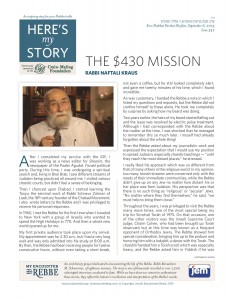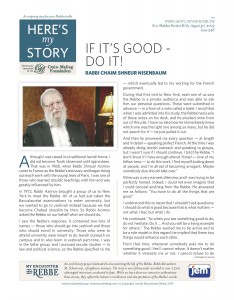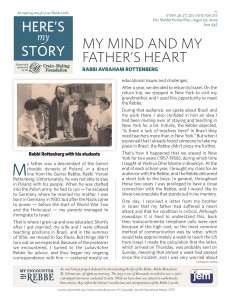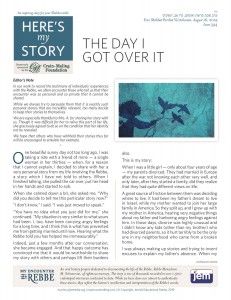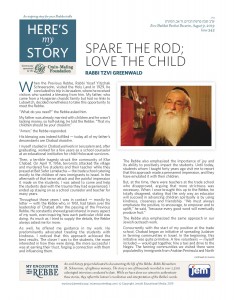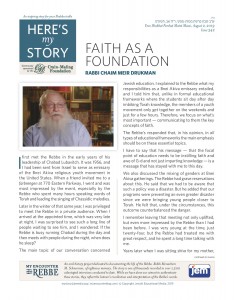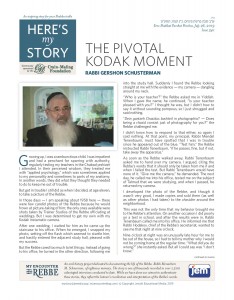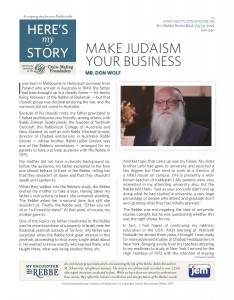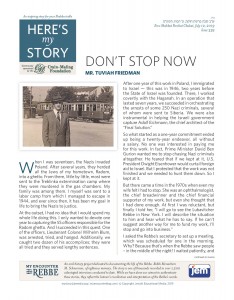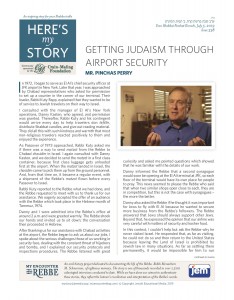The $430 Mission
After I completed my service with the IDF, I was working as a news editor for Shearim, the newspaper of the Poalei Agudat Yisrael political party. During this time, I was undergoing a spiritual search and, living in Bnei Brak, I saw different streams of Judaism being practiced all around me. I visited various chasidic courts, but didn’t feel a sense of belonging.
Then I chanced upon Chabad. I started learning the Tanya, the seminal work of Rabbi Schneur Zalman of Liadi, the 18th century founder of the Chabad Movement; I also wrote letters to the Rebbe and I was privileged to receive his personal responses.
In 1960, I met the Rebbe for the first time when I traveled to New York with a group of Israelis who wanted to spend the High Holidays in 770. And then a whole new world opened up for me.
My first private audience took place upon my arrival. My appointment was for 2:30 a.m., but I had a very long wait and was only admitted into his study at 8:00 a.m. By then, the Rebbe had been receiving people for twelve consecutive hours, without even taking a short break, not even a coffee, but he still looked completely alert, and gave me twenty minutes of his time, which I found incredible.
As was customary, I handed the Rebbe a note in which I listed my questions and requests, but the Rebbe did not confine himself to these alone. He took me completely by surprise by asking how my beard was doing.
Two years earlier, the hairs of my beard started falling out and the issue was resolved by electric pulse treatment. Although I had corresponded with the Rebbe about the matter at the time, I was shocked that he managed to remember this so much later. I myself had already forgotten about the whole thing!
Then the Rebbe asked about my journalistic work and expressed the expectation that I would use my position to spread Judaism, especially chasidic teachings – “until they reach the most distant places,” he stressed. (more…)


